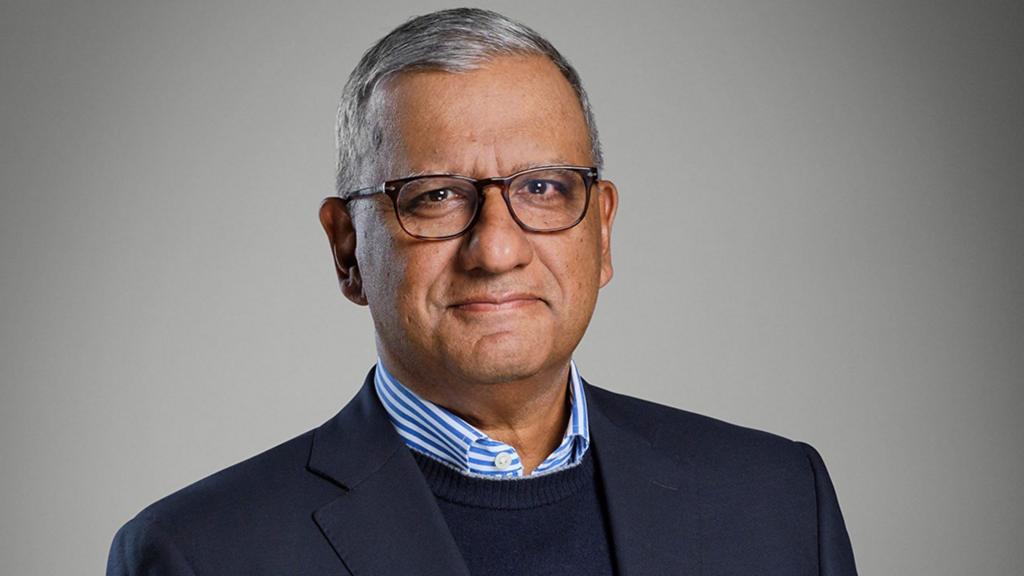A member of the BBC’s board has resigned, citing “governance issues” within the corporation’s upper echelons.
In his resignation letter, Shumeet Banerji also stated he was “not consulted” regarding the circumstances surrounding the recent departures of Director-General Tim Davie and BBC News CEO Deborah Turness.
The BBC confirmed Banerji’s resignation in a statement released on Friday.
BBC News has reached out to Banerji for comment.
The resignations of the BBC’s two top executives earlier in November stemmed from the controversy surrounding a Panorama episode that deceptively edited a 2021 speech by former U.S. President Donald Trump.
Subsequent to these events, questions have arisen concerning the operational efficacy of the BBC board, which holds responsibility for the oversight and strategic direction of the organization.
Banerji’s attribution of his departure to governance issues appears to directly target Chairman Samir Shah and other members of the board.
Banerji’s resignation occurs at a critical juncture for the BBC, as Shah, alongside board members Sir Robbie Gibb and Caroline Thomson, are scheduled to provide testimony before the Culture Media and Sport Committee of MPs on Monday afternoon.
Parliament has already seen questions pertaining to political appointments within the BBC board (which includes five members, among them Shah and Gibb).
They are likely to face inquiries regarding allegations, initially presented in a leaked document, that the BBC suffers from “systemic issues” related to its coverage of subjects such as the Israel-Gaza conflict, and issues surrounding sex and gender. These claims were previously refuted by Turness and Davie.
The document, authored by Michael Prescott, formerly an independent external advisor to the BBC’s Editorial Standards Committee, was published by the Telegraph newspaper and also highlighted the aforementioned Panorama edit.
Since then, the corporation has publicly acknowledged that the edit conveyed “the mistaken impression that President Trump had made a direct call for violent action” on the day of the riot at the U.S. Capitol building on January 6, 2021.
In his speech on January 6, 2021, Trump stated: “We’re going to walk down to the Capitol, and we’re going to cheer on our brave senators and congressmen and women.”
Later in the speech, more than 50 minutes after the first statement, Trump added: “And we fight. We fight like hell.”
In the Panorama program, Trump: A Second Chance?, the edited clip presented Trump as saying: “We’re going to walk down to the Capitol… and I’ll be there with you. And we fight. We fight like hell.”
Trump has threatened legal action over the program, alleging defamation. While the BBC has issued an apology, it has declined the president’s demand for financial compensation.
According to the BBC’s website, Banerji’s role on the board involved being “responsible for upholding and protecting the independence of the BBC by acting in the public interest and exercising independent judgement.”
Banerji, who has served as a non-executive board member since 2022, is the founder of a consulting and investment firm focused on technology companies. He previously led Booz & Company, a management consultancy firm.
The BBC’s 12-member board is tasked with ensuring the organization fulfils its public service mandate and with establishing the strategic direction of the corporation, which is primarily funded by license-fee payers.
Non-executive members hold the BBC’s executive management accountable. The board is headed by Shah, a former documentary filmmaker.
A BBC spokesperson released the following statement: “Shumeet Banerji today notified the BBC Board of his resignation. Mr. Banerji’s term on the Board as a non-executive director was due to conclude at the end of December, and we thank him for his service.”
“The search for his replacement is already well underway, and we will provide further updates as appropriate.”

